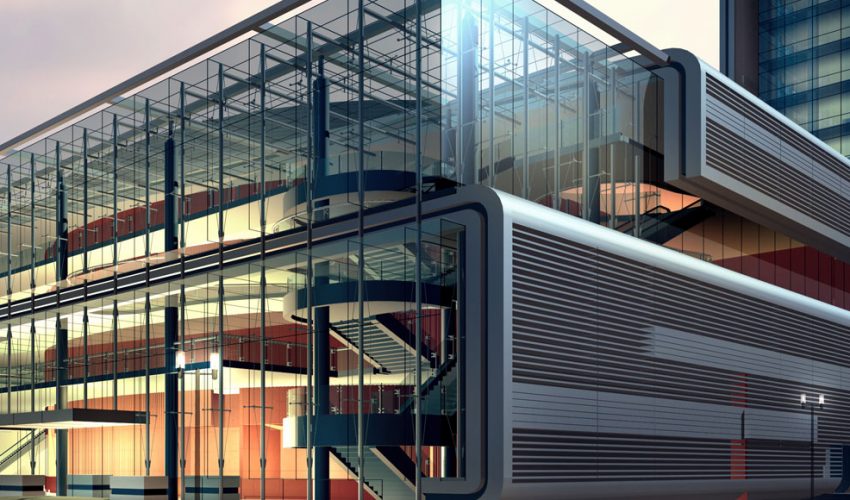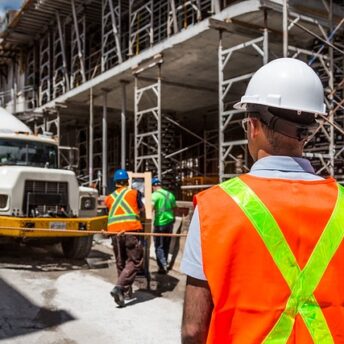Leasing an industrial unit can be an exciting time for a growing firm that needs additional space. There are a few critical points to keep in mind to ensure that your lease goes as smoothly as possible. Whilst finding the proper unit in the right location is vital, you must also evaluate its intended usage. Not all landlords will allow you to do everything you want with your new unit, and certain uses may require planning permission. If you wish to change the building’s use or conduct restricted operations such as chemical handling or food preparation, you must first obtain permission from your landlord.
As the public has become more accustomed to online shopping as a result of the lockdowns imposed due to the Covid 19 pandemic, there has been a boom in the demand for distribution centres and warehousing. Consequently, the terms of an industrial lease have never been more important. In this article, industrial unit lease, we take a look at the process involved.
Please click here to find out more about our commercial property services.
Free Initial Telephone Discussion
For a free initial discussion with a member of our new enquiries team, get in touch with us today. We are experienced in dealing with all aspects of commercial property law and once instructed we will review your situation and discuss the options open to you in a clear and approachable manner. Early expert legal assistance can help ensure you avoid the stress of dealing with these issues on your own. Simply call us on 0345 901 0445 or click here to make a free enquiry and a member of the team will get back to you.
What are the different types of industrial unit?
Industrial property is a broad category of commercial property that comprises a diverse range of distinct structures. They fall into the following categories:
- Buildings for heavy manufacturing. These massive operations often create heavy-duty materials and items, necessitating the utilisation of a large amount of powerful machinery.
- Buildings for light manufacturing. These are often smaller and less complex than the previous group, and are used to assemble, store, and distribute products.
- Buildings used for warehouse/distribution. These are intended for the storage and distribution of commodities. When a warehouse is utilised for distribution, its location becomes even more critical. To ensure that items can be conveniently transported throughout the UK, it is a good idea for the unit’s location to be close to air, sea, rail, and road links.
- Buildings for refrigeration/cold storage. These are specialised properties with plenty of cold storage and freezer space. As a result, they are frequently used to distribute food.
- Terminals for trucks. In contrast to general-purpose warehouses, truck terminals serve as locations for the loading and unloading of commodities between trucks. There doesn’t tend to be much storage space.
- Buildings for research and development. These facilities, which are devoted to research and development, are where businesses produce and improve products. They are mainly prevalent in high-tech areas such as electronics and biology.
- Data centres. These highly specialised assets are where businesses store data and enable cloud storage. They are typically located near important communications trunk lines in order to gain access to a large power supply.
- Buildings used as showrooms. These are a mix of warehouse and office space, as well as showrooms.
When you have found the ideal industrial unit for your operation, it is time to focus on the terms of the lease itself and have an understanding of your rights and obligations.
What are the stages involved in drawing up a lease?
- Agree heads of terms (HOTs) with the landlord
The HOTs should contain all of the lease’s details and reflect everything that has been agreed upon so far. Anything that is absent is at risk of not being included in your lease and so cannot be depended upon in the future. If the landlord or their agent has pledged to do something prior to or during the term of your lease, you should ensure that it is mentioned in the HOTs. Verbal agreements are rarely enforceable, particularly if your landlord changes in the future and you find yourself dealing with someone quite different.
- Instruct an experienced solicitor
Depending on the complexity of the deal you are signing, you may or may not feel the need to instruct a solicitor. However, always seek expert guidance if in doubt. Once a lease is signed, it cannot be changed, and a court will almost certainly enforce the terms regardless of whether you knew what you were signing.
- Carry out your due diligence
This is the point where you really need to go through the fine print of what you are signing up to. The landlord should be able to answer any reasonable questions you may have regarding the property, present a copy of the Energy Performance Certificate (which must be E or higher by law), or offer verification that they are the property’s owner and authorised to rent it to you.
- Complete you Know your Customer (KYC) checks
Get information that confirms your identity ready, this includes your passport, company financials or a utility bill.
- How are you going to pay the rent?
Certain landlords insist on rent being paid by direct debit or standing order. Only a small percentage of landlords accept cash payments. If you’re starting a new business, you’ll want to ensure that you have bank accounts set up and ready to go.
- Make payment
You will need to pay any required advance rent or rent deposits prior to the lease commences. If the landlord is not trustworthy, it may be prudent to transfer these to a lawyer registered with the Law Society, as this will provide you with protection in the event that the lease does not complete.
- Sign the paperwork
Before you can move in, you must sign the lease or licence, as well as any other documents related to it, such as plans, schedules of condition, or licences for renovations. Confirm that your signatories are available when required.
- Pick up the keys to the unit
Once all of the steps in the process have been completed, you will be allowed to pick up the keys as the unit will now be ready for you to occupy.
How we can help
We have a proven track-record of helping clients draw up industrial leases. We are a multidisciplinary firm and have all the expertise inhouse to satisfy the most exacting requirements of our clients. We will guide you through all the necessary legal due diligence in a comprehensive and timely manner. We firmly believe that with the right solicitors by your side, the entire process will seem more manageable and far less daunting.
How to Contact Our Commercial Property Solicitors
It is important for you to be well informed about the issues and possible implications of signing a commercial lease. However, expert legal support is crucial in terms of ensuring a positive outcome.
To speak to a member of our New Enquiries Team today, simply call us on 0345 901 0445, or click here to make a free enquiry. We are well known across the country and can assist wherever you are based. We also have offices based in Cheshire and London.





